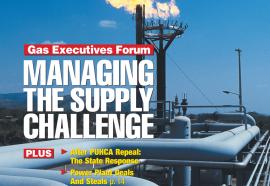Regulators Forum: Taming the Utility Frontier
Policymakers are setting sights on new challenges facing utilities.
Utilities in the United States are heading into uncharted territories, and the regulatory landscape is changing accordingly. To learn what it takes to tame this new territory, we spoke with three FERC commissioners, a state regulator, and a Western governor.











